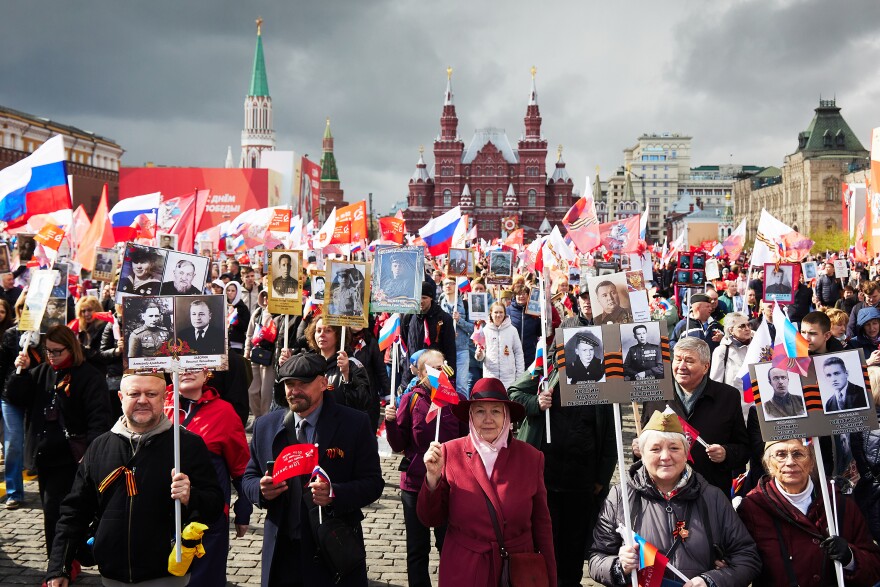As Monday draws to a close in Kyiv and in Moscow, here are the key developments of the day:
Russian President Vladimir Putin devoted much of his annual Victory Day speech to Ukraine, but did not claim any victories. Nor did he signal major military or policy shifts in what the Kremlin continues to call its "special military operation" in Ukraine. Putin painted Russia's campaign as this generation's link to the Soviet defeat of Nazi Germany, saying it was forced by actions of the U.S. and NATO. In a video address, Ukrainian President Volodymyr Zelenskyy vowed that Ukraine would win, saying, "Very soon there will be two Victory Days in Ukraine." A senior U.S. defense official said there are no major changes on the battlefield.
World leaders weighed in on the Ukraine war on Victory in Europe Day. G7 leaders released a statement commemorating the end of World War II in Europe and pledging further support to Ukraine. "Freedom and security will win the day, just as freedom and security triumphed over oppression, violence, and dictatorship 77 years ago," German Chancellor Olaf Scholz said in a speech. Over the weekend, Canadian Prime Minister Justin Trudeau reopened his country's embassy in Kyiv. A formal reopening of the U.S. Embassy is expected soon.
The United Nations head and international aid organizations are among those condemning an attack on Saturday on a school in Luhansk that was sheltering 90 people, including children. U.N. Secretary-General António Guterres said he was "appalled" by the bombing. Thirty people have been rescued from the rubble. The rest are feared dead.
First lady Jill Biden wrapped up a four-day trip to Eastern Europe, which included a surprise visit to Ukraine on Sunday to meet with Ukraine's first lady Olena Zelenska, who has been in hiding since the war began.
The board of the Pulitzer Prizes awarded the journalists of Ukraine a special citation "for their courage, endurance, and commitment to truthful reporting" since Russia's invasion. "Despite bombardment, abductions, occupation, and even deaths in their ranks, they have persisted in their effort to provide an accurate picture of a terrible reality, doing honor to Ukraine and to journalists around the world," the citation says.
Ukraine's bomb-sniffing Jack Russell terrier received a presidential medal. Patron the dog and his owner, Mykhailo Iliev of the Civil Protection Service, received a medal from Zelenskyy in recognition of their service to the country. Patron, whose name means "ammo" in Ukrainian, is credited with detecting more than 200 undetonated explosive devices since the beginning of the war, according to Reuters.
In-depth
'The New York Times' can't shake the cloud over a 90-year-old Pulitzer Prize.
Ukraine's ambassador to the U.S. says Ukraine will insist on EU membership.
These Ukrainian students are competing virtually in an international science fair.
Earlier developments
You can read more news from Monday here and more daily recaps here. For context and more in-depth stories, you can find NPR's full coverage here. Also, listen and subscribe to NPR's State of Ukraine podcast for updates throughout the day.
Copyright 2022 NPR. To see more, visit https://www.npr.org.
Loading...








